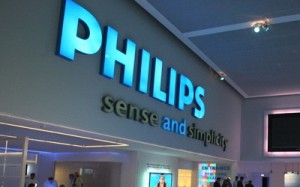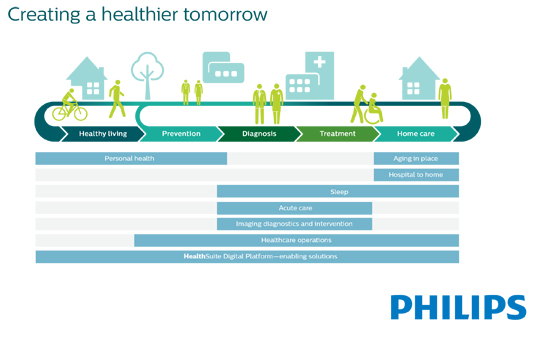Philips launches “Buy Original” campaign to enlighten consumers on the existence of counterfeit products


Royal Philips has launched its “Buy Original” campaign; an informative multi-year outreach aimed at protecting consumers, creating awareness about counterfeit products in the market and educating consumers in identifying an original genuine product versus a counterfeit one.
According to the Global Intellectual Property Centre (GIPC) world-wide, cross border trade in physical counterfeits alone cost the global economy USD 250 billion a year. In Africa, counterfeit products are posing serious concerns for local economies and brands who have worked hard to build reputation and consumer confidence in their markets.
Consumers in most instances aren’t even aware that they are buying fake products; Philips wants to put consumers in a position that they are confident that they are purchasing an original Philips product. A genuine product is subject to quality and safety control and will protect the consumer and their family. It also provides customers the after sales guarantee and the peace of mind that the after-sales commitment will be honoured.
According to research conducted by the Anti-Counterfeit Agency in Kenya, the level of counterfeiting in Kenya accounts for the largest deviations in both foreign direct investment (FDI) inflows and economic growth; highlighting the need for the government, manufacturers, MNC’s and consumers to step up efforts in the fight against counterfeiting.
Philips is tackling this issue through the launch of its “Buy Original” campaign, which will introduce effective measures for consumers to be able to easily identify and verify Philips original consumer appliances and lighting products.
“While there are no reliable industry wide statistics on the number of products that are counterfeits; from market feedback we receive, we know that this issue is very severe. Philips wants to work alongside consumers, government authorities, other MNCs and relevant organizations to see how we can collaborate together to enlighten and inform the consumers on matters relating to counterfeiting. We urge the public to become more vigilant and question products that seem to be unusually cheap, appear poorly made, or have generic packaging; especially when shopping at discount stores. We would like to encourage consumers to shop from approved Philips distributors and retailers and look for the “Original” sticker on our products,” said Roelof Assies, General Manager, Philips East Africa.
Counterfeiting is designed to mislead the public and all who are involved in buying and selling the product in order to make easy money by freeriding on the reputation of others. It is hard to pinpoint where the fake product or packaging is originally made, where the shipment originates, and who is responsible for exporting the product.
In Africa, most fake products exist in the informal trading markets rather than in the modern retailers. Philips’ internal research indicates that the best performing products where consumer demand is high tends to fall prey to counterfeits including: dry irons, kettles, blenders, Philips AVENT baby bottles and certain lighting products such as TLD (tubes), starters, energy saving lamps such as Genie lamps, halogen lamps and fluorescent tubes.
In Kenya and other countries, a number of Philips lamps (lighting products) sold are counterfeits. Cheap components found in the counterfeit lamps, such as the driver which regulates electrical voltage, cause the lamp to fail well before its stated lifetime. Also, it can prove to be a hazard because of the poor construction. Counterfeits are therefore dangerous to consumers.
The Philips “Buy Original” campaign kicks-off in Kenya and will move across Sub-Saharan Africa in Q1 2015. Philips will be introducing innovative hologram security stickers (for lamps) and providing a unique 16 digit code validation code for all Philips Lighting products, as well as the “original” sticker for their consumer lifestyle and lighting products to enable consumers to easily and instantaneously identify originals.
This is being supported by a two-year guarantee on all original Philips products as well as a comprehensive Point-of-Sale (instore) and media led customer education programme and an extensive print and radio advertisement campaign.
Philips is also setting up a sms number for authentication of the Philips Lighting portfolio in case of doubt; the consumer (in Kenya) has to send the 16-digit serial number of the lighting product via sms to 20222 and they will receive immediate feedback on whether the product they are planning to buy or have bought is genuine or fake. This is a pilot and if proven successful, Philips will explore rolling this out to the consumer lifestyle category of products too.
Philips is setting up a dedicated website www.philips.com/buyoriginal where consumers can send queries or feedback and also where they can find details of genuine v/s counterfeit products as well details of all Philips authorized distributors.
“The issue of counterfeit products has serious repercussions for consumers’ health and safety. Buyers are often looking for the best deal and are not necessarily aware of the risks involved in purchasing a counterfeit product. Protecting the consumer is our number one priority. The Philips ‘Buy Original’ campaign will not only allow consumers to easily identify a Philips original but empower them to take the necessary steps in reducing counterfeit trading in the country.” added Roelof Assies.



